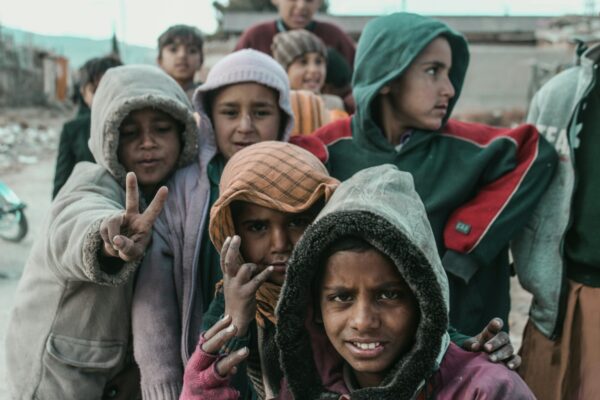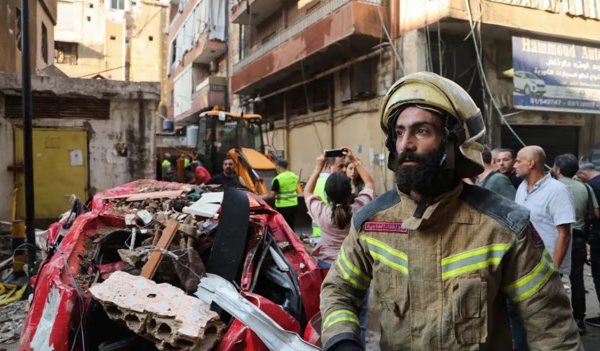Celebrities and influencers queued up to help Ukraine. Still waiting for people to do the same for Pakistan. Zakat Foundation of America’s Amna Mirza reflects on the reaction (or lack of) from western powers and their selective outrage at disasters.
Celebrities and influencers queued up to help Ukraine. Still waiting for people to do the same for Pakistan. Zakat Foundation of America’s Amna Mirza reflects on the reaction (or lack of) from western powers and their selective outrage at disasters.
For weeks, Zakat Foundation of America’s key staff members have been working endlessly to send much-needed aid to Pakistan flood victims. We’ve already pledged half-a-million dollars in critical aid and are frantically working to exceed that goal. The humanitarian catastrophe in Pakistan is unfathomable. The short-term, simple survival basics like clean water, shelter, and medical attention are desperately needed. We haven’t even begun to scratch the surface of what the country and people will need to recover or rebuild after this climate-driven tragedy.
Pakistan is already devastated by lack of infrastructure, political unrest, and extreme poverty; the outlook is not favorable. By now, you’ve read or seen the endless posts and tweets on social media on how the country of Pakistan emits less than 1% of the world’s carbon emissions, but is drowning because of them.
Within minutes, complete villages turned to mud, as though they never existed — wiped off the face of earth. Pakistanis are paying the price for a burning planet with their lives and homes. And those responsible for the climate crisis are mostly silent. Where’s their climate justice? Where’s their benefit concert? Where’s their CNN red alert bar asking for donations? Where is Greta Thunberg’s press conference?
Developing countries had agreed more than a decade ago to transfer at least $100 billion a year by 2020 to underdeveloped nations to help them adapt to climate change, according to a CNN article. That amount has never been delivered in full. Wealthy countries, including the United States, have consistently been top carbon polluters, in fact the U.S. has historically been the world’s leader in this arena. That in and of itself should be reason enough for Americans to lead the charge in sending aid to Pakistan. American celebrities should be taking to Twitter to announce their crowdfunding campaigns, launching multi-platform fundraising efforts, sharing the country flag with hashtags dominating Instagram. It’s not like expecting that type of response is expecting too much; it’s not like celebrities don’t do that — use their channels to raise money for catastrophe relief. We saw it when Blake Lively and Ryan Reynolds offered to match $1 million in donations to help Ukrainian refugees. We saw it when a line up of celebrities created ads calling for the world to give to Ukraine, raising over £120 million in five days. We saw it with “Stand Up for Ukraine” rallies across the globe, and this comradery wasn’t only seen for Ukraine. We saw it in Haiti when Sean Penn and his friends raised $37 million for the earthquake victims. Stars like Bono, Justin Timberlake and Alicia Keys performed in the Hope For Haiti TV fundraising event, a global star-studded event where proceeds helped Haiti recover from the devastating earthquake.
I applaud these acts of generosity and humanitarianism. I just wonder where Pakistan’s big humanitarian appeal from Americans is — after all, Americans are the leading contributors to climate change, which is overwhelmingly and disproportionately affecting Pakistanis. Maybe it takes an American-Pakistani to launch such an appeal? No, that doesn’t seem to ring true, either. For the most part, there has been no grand gesture, no ad campaign, no Twitter storm, no A-list crowdfunding campaigns, and alas, no star-studded concert or telethon either. It seems we’re leaving it to Pakistanis to rescue their own country, even though we’re happy to do our part in pulling other countries out of disasters. Imran Khan, an ousted Prime Minister loved by the people, but disliked by institutional politicians, reportedly raised Rs5 billion for flood victims in a matter of hours. He, of course, is Pakistani.
We see that global generosity and overall humanitarianism exist. People all over the world donate to emergency relief causes. They understand how important these causes are in the long run. Still, they don’t donate in the same public fashion when it comes to our part of the world.
Why is the response so drastically different when catastrophes hit Muslim countries? How can we explain the difference? For those of us who are Muslim, we feel the difference, like a sharp, stabbing pain in the back. Even though our expectations run high that mainstream media and A-list celebrities will help raise awareness and funds, we’re never shocked when it doesn’t happen. I understood at an early age that not all lives are considered equal and that not all human suffering is equal in the eyes of the media, politicians, teachers, and sometimes even friends. Race and religion play a role in the drastically different responses from the public. Islam has been racialized, and Pakistanis overwhelmingly are Muslims. With Islam portrayed as enemy #1, this means their struggles aren’t critical enough to deserve a Carnegie Hall benefit concert. Unfortunately, Facebook fans, Instagram and TikTok followers see the difference between a Ukrainian orphan and a Pakistani orphan, and this “othering” is why we won’t see that benefit concert.
If celebrities won’t lead the effort, and American media won’t lead the effort, who in the west can we depend on? Maybe Muslim charities like Zakat Foundation of America can lead the way. We’re up for the challenge.
I hope I’m wrong, but I won’t hold my breath for our benefit concert.





